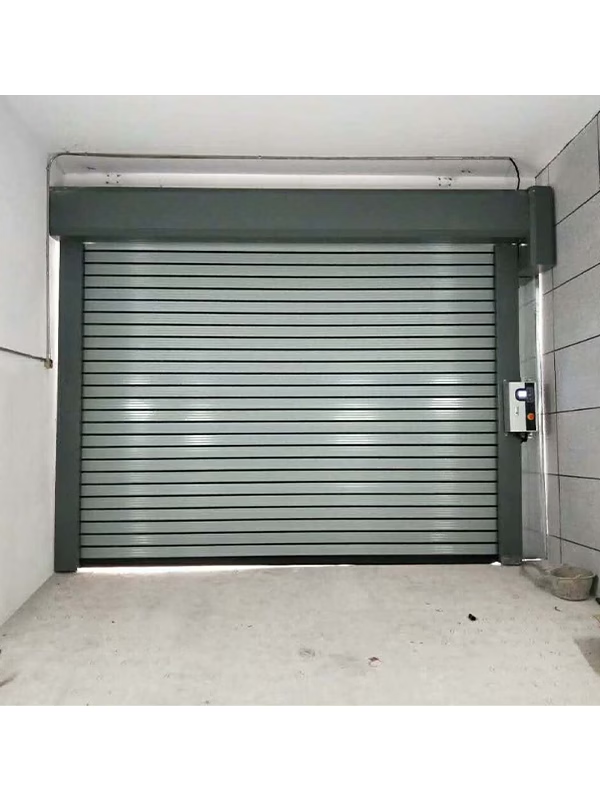metal roll up garage doors
Metal Roll Up Garage Doors: A Comprehensive Guide
What Are Metal Roll Up Garage Doors?
Metal roll up garage doors are a popular choice for residential, commercial, and industrial applications due to their durability, security, and space-saving design. Unlike traditional sectional garage doors, roll up doors operate by rolling vertically into a compact coil above the opening, making them ideal for areas with limited ceiling or driveway space.
Constructed from high-quality steel or aluminum, these doors offer excellent resistance to weather, impact, and wear. They are available in various gauges, finishes, and insulation options to suit different needs.
Types of Metal Roll Up Garage Doors
1. Steel Roll Up Doors
Steel is the most common material for roll up garage doors due to its strength and affordability. These doors are available in different thicknesses (gauges), with lower gauge numbers indicating thicker, more durable steel.
- 24-Gauge Steel: Lightweight and cost-effective, suitable for residential use.
- 22-Gauge Steel: Mid-range thickness, balances durability and affordability.
- 20-Gauge Steel: Heavy-duty, ideal for commercial and industrial settings.
2. Aluminum Roll Up Doors
Aluminum roll up doors are lightweight, corrosion-resistant, and ideal for coastal areas or places with high humidity. While not as strong as steel, they are rust-proof and require minimal maintenance.
3. Insulated Roll Up Doors
Insulated metal roll up doors feature a layer of polyurethane or polystyrene foam between metal panels, improving energy efficiency and noise reduction. These are ideal for:
- Climate-controlled garages
- Workshops
- Commercial spaces requiring temperature regulation
4. Non-Insulated Roll Up Doors
Non-insulated doors are more affordable and suitable for storage units, warehouses, or garages where temperature control is not a priority.
Key Features of Metal Roll Up Garage Doors
1. Space-Saving Design
Unlike sectional doors that swing outward or slide sideways, roll up doors coil into a compact overhead housing, freeing up driveway and interior space.
2. Durability & Security
Metal roll up doors are highly resistant to:
- Forced entry (due to interlocking slats)
- Extreme weather (wind, rain, snow)
- Dents and impacts (depending on gauge thickness)
Many models include reinforced locking mechanisms for added security.
3. Low Maintenance
Steel and aluminum doors require minimal upkeep—occasional lubrication of tracks and cleaning with mild detergent are usually sufficient.
4. Customization Options
- Colors & Finishes: Powder-coated finishes resist fading and scratches.
- Window Inserts: Allow natural light while maintaining security.
- Automation Compatibility: Can be paired with garage door openers for convenience.
Benefits of Metal Roll Up Garage Doors
1. Longevity
High-quality steel or aluminum doors can last 20-30 years with proper maintenance.
2. Enhanced Security
Interlocking slats and robust locking systems deter break-ins better than traditional doors.
3. Weather Resistance
Galvanized steel and corrosion-resistant coatings protect against rust, moisture, and UV damage.
4. Smooth Operation
Roll up doors operate on a guided track system, ensuring smooth opening and closing with minimal noise.
5. Fire Resistance
Some commercial-grade metal roll up doors are fire-rated, making them suitable for industrial applications.
Applications of Metal Roll Up Garage Doors
1. Residential Use
- Single and double-car garages
- Drive-through garages with limited space
2. Commercial Use
- Retail storefronts
- Warehouses and loading docks
- Parking garages
3. Industrial Use
- Manufacturing facilities
- Aircraft hangars
- Fire stations
Installation Considerations
1. Door Size & Opening Measurements
Accurate measurements of width, height, and headroom (space above the door) are crucial for proper installation.
2. Spring System
Roll up doors use either:
- Torsion Springs: Mounted above the door, providing balanced lifting.
- Side-Mounted Springs: Suitable for lighter doors.
3. Motorization & Automation
Electric operators can be added for remote-controlled operation via:
- Wall-mounted keypads
- Smartphone apps
- Remote controls
4. Professional vs. DIY Installation
While DIY installation is possible for lightweight models, professional installation is recommended for:
- Heavy-duty doors
- Commercial applications
- Ensuring warranty compliance
Maintenance Tips for Metal Roll Up Garage Doors
-
Lubricate Moving Parts
- Apply silicone-based lubricant to rollers, hinges, and tracks every 6 months.
-
Inspect for Damage
- Check for dents, rust, or misaligned tracks regularly.
-
Clean the Door
- Use mild soap and water to remove dirt and debris.
-
Test Safety Features
- Ensure auto-reverse mechanisms (if motorized) function correctly.
Cost of Metal Roll Up Garage Doors
Prices vary based on material, size, insulation, and automation:
- Non-Insulated Steel Doors: $500 – $1,500
- Insulated Steel Doors: $1,000 – $3,000
- Aluminum Doors: $800 – $2,500
- Commercial/Industrial Doors: $2,000 – $10,000+
Common Problems & Solutions
1. Door Won’t Open/Close Smoothly
- Cause: Misaligned tracks or worn rollers.
- Solution: Realign tracks or replace rollers.
2. Noisy Operation
- Cause: Lack of lubrication.
- Solution: Apply lubricant to moving parts.
3. Rust Formation
- Cause: Exposure to moisture.
- Solution: Clean and apply rust-resistant paint.
Choosing the Right Metal Roll Up Garage Door
1. Assess Your Needs
- Residential: 24-22 gauge steel, optional insulation.
- Commercial: 22-20 gauge steel, reinforced locking.
- Industrial: Heavy-duty steel, fire-rated options.
2. Compare Brands & Warranties
Reputable brands like Clopay, Amarr, and Overhead Door offer warranties ranging from 1-20 years.
3. Consider Energy Efficiency
Insulated doors reduce heating/cooling costs in climate-controlled spaces.
4. Check Local Building Codes
Some areas require wind-load or fire-rated doors for compliance.
Final Thoughts on Metal Roll Up Garage Doors
Metal roll up garage doors provide a secure, durable, and space-efficient solution for various applications. Whether for a home, business, or industrial facility, selecting the right material, insulation, and automation ensures long-term performance and satisfaction.

